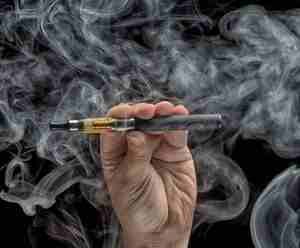Smoking cigarettes after a tooth extraction isn’t an option. If you smoke, your dentist will provide you with strict guidelines to avoid smoking as long as you can after an extraction, usually at least 72 hours.
If you’re searching for that cigarette, or you’re missing your evening meal, It’s easier to do than say.
But, if you’re in a position not to quit smoking for more than 48 hours, you could be at risk of having a dry socket. The name implies a dry socket is if the blood clot develops after an extraction disintegrates or becomes removed. If this happens, it exposes the bone and nerve tissues of the extraction site, and it is a matter of time before the infection begins to develop.
The Logistics Of A Tooth Extraction
It is important to understand that removing a tooth is not something your dentist will ever want to do. They’re trained to do all possible to ensure you maintain the natural teeth you have. If you’ve had an accident that resulted in injury to a tooth, there is no other option but to extract the tooth, which was not originally in the plan. Also, if you’ve got an abyss, deep cavity, or advanced gum disease, any of these causes could cause the removal of your tooth.
Smoking is a risk following the removal of wisdom teeth
Similar to regular tooth extractions, It is not advised to smoke following wisdom tooth extraction. Smoking cigarettes after wisdom tooth extraction could cause the same problems as smoking cigarettes after another extraction.
In reality, the pain caused by smoking can be more severe after wisdom tooth extraction since the wounds to wisdom teeth are likely to be more extensive.
Can I Smoke After A Tooth Extraction?
Smokers smoking can be extremely difficult to take even one or two breaks from smoking cigarettes; however, it is crucial to take this step after having a dental procedure. Despite the overwhelming desire to smoke cigarettes, dentists strongly advise waiting at a minimum of 72 hours after tooth extraction, which includes wisdom teeth, before you smoke cigarettes in any form. Inhalations of destructive force resulting from smoking cigarettes and the chemicals and toxins in cigarettes negatively hinder and delay the healing process. It could cause serious problems such as dry sockets and infection. Socket.

After a dental extraction, the formation of a blood clot where the tooth used to be in the past. This blood clot assists in healing the nerve endings as well as bone that reside in the area of extraction and is a crucial component of healing. The forceful inhalation of tobacco can remove this beneficial blood clot, and the chemical compounds from tobacco can slow the healing process. If the blood clot is removed before healing has been completed, there is a dry socket. In addition to making a dry socket painful, it can delay healing and must be avoided. Dry sockets are characterized by a sour smell near the extraction site, coupled with severe pain that could extend throughout the jaw and difficulties opening the mouth.
Let The Healing Begin
There are other factors for healing quickly and on time. You should refrain from vigorous physical activity for 24 hours and make sure to avoid alcohol and hot drinks. It’s all about blood clots, do you remember? You should avoid rubbing the area of extraction while you brush your teeth. It is also recommended to avoid hard foods and could cause the clot to be dislodged. The act of sucking any drink through straws is not recommended too. It’s as harmful as sucking on a cigarette. If you’re looking for reasons to quit smoking, it’s best to start with the time of tooth extraction.
Take the Opportunity to Quit
It is also possible to use your extraction to be a chance to stop smoking cigarettes. The withdrawal symptoms usually disappear completely after one month. But, it’s not surprising that such a drastic measure might seem unimaginable in the wake of the pressure of having your tooth extracted. The first thing that comes to your mind after leaving the dental clinic following an extraction could be the next time you smoke.
